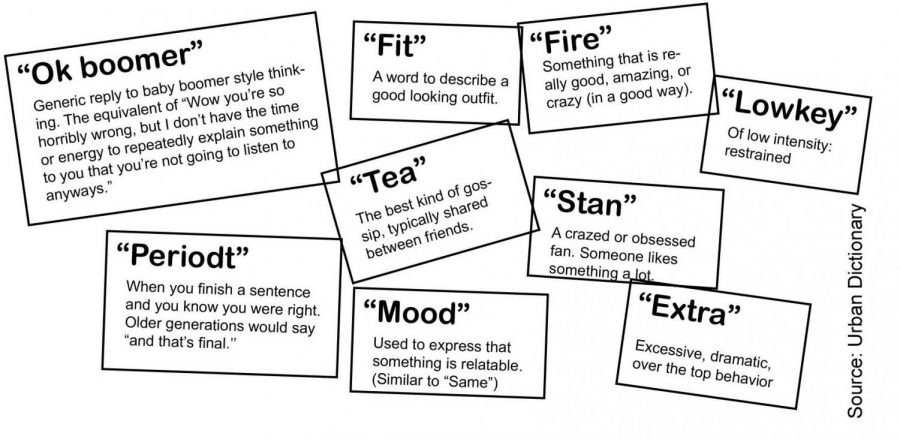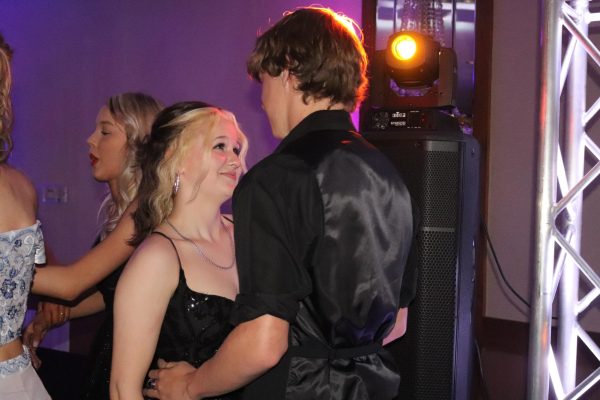Slang connects teens together, separates them from adults
Today’s slang is inescapable for teens, due to the internet and constant interaction with peers. Slang is an either sink or swim concept. Teens either understand and engage in slang, or they are left in the dust with a state of confusion and alienation. Teens participate in slang even if it causes issues between them and adults.
Slang can both connect and disconnect teens with others. New words and phrases such as, ‘ok boomer, that’s on periodt, tea, lowkey, fire, stan, mood, and fit,’ are common throughout the Generation Z community. These words can help them find common ground between each other. Even though teens often understand these words and enjoy connecting with each other with them, adults can find it disrespectful and difficult to understand.
Freshman Faith Tharaldson says slang can help harvest a social environment between teens. This can be useful for teens who seek to create a relationship between their peers.
“I feel the more slang you use, the more social you tend to be or become. It helps you interact and connect with others even without realizing it,” Tharaldson said.
Not only does it help to create a social environment, but also creates a comfortable environment for teens. Senior Lilly Alspaugh says slang helps teens feel more relaxed and less judged on their speech.
“I think our slang makes us more comfortable to talk to one another, instead of speech being very formal between two people,” said Alspaugh.
Lingo can hinder this generation’s relationships with parents, teachers, employers, friends, and more. Often adults can find it rude and that the younger generation is forcing them into a stereotype.
A MetaFilter article published on Nov. 3, 2019 titled “The End of Friendly Generational Relations,” discusses the phrase “ok boomer.” “I can’t help but feel disheartened at how casual agism is so readily accepted in activist spaces these days. None of us are only one thing, and making assumptions of marginalizing people based on their date of birth is just wrong and Generation Z often also viewed their recent slang as disrespectful, yet they still engage in it. They fear being excluded from the joke or “meme” of new slang today, even if it causes others harm. Junior Taylor Spry explains how she views the generational gap due to slang.
“I feel that some lingo shouldn’t be a thing because adults might might view us as disrespectful or dumb. I say it [“okay boomer”] anyways because it is like a meme right now,” said Spry.
Slang has always been around and changes from generation to generation, but today’s teens are subject to an entirely new type of slang. Most of their slang has risen from social media and the internet. It is spread so quickly and easily, it is hard for them not to be involved within it. It can have a negative impact on teens and a positive impact, depending on the situation and circumstances.

Senior Andrea Merritt is known by her family as “bubbles.” This nickname definitely describes who she is as a person. She is sociable and creative....










